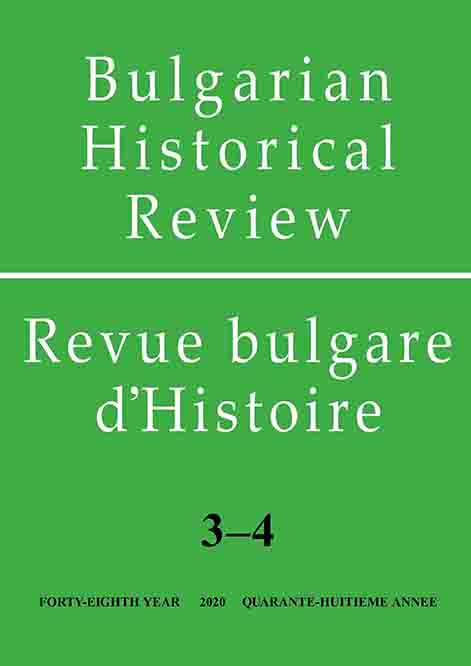Russland und die Orientalische Frage (1688–1878) Zwischen “Formal” und “Informal Power” auf dem Balkan
Russia and the Eastern Question (1688–1878) between “Formal” and “Informal Power” in the Balkans
Author(s): Ivan ParvevSubject(s): History, Diplomatic history, Military history, Political history, Modern Age, Special Historiographies:, 17th Century, 18th Century, 19th Century, The Ottoman Empire
Published by: Институт за исторически изследвания - Българска академия на науките
Keywords: Eastern Question; Russia; Balkans; Austria; Eastern Crisis 1875–1878; Balance of Power; Informal Power; Formal Power; Consensual War; Ottoman Empire; Congress of Berlin;
Summary/Abstract: The chapter examines the foreign policy of Russia towards the Balkans, as seen through the prism of the “Eastern Question” between its beginning in 1688 and the Congress of Berlin (1878). The author proposes a new definition and a new periodization of the “Eastern Questions”, which should be regarded as an attempt to shad a new light on that particular scholarly field. Contrary to the common belief that Imperial Russia had some problems in using “Soft Power” as a tool of foreign policy, the author states that in the “Eastern Question” Russian rulers were quite effective in establishing “Informal Power” in the Balkans in contrast to the Austrians, who preferred to stick to traditional policy of expansion based on the principle of “uti possidetis”. The special combination between moderate territorial gains in South-East Europe and a sweeping extension of “Informal Power” is the key for explanation of Russian domination between 1774 and 1856 not only in the Balkans, but in the “Eastern Question” as well. Besides all that the Russians made use of a special kind of war against the Ottomans, named by the author as a “Consensual War”, which could also promote Russia’s “Informal Power”. The Eastern Crisis of 1875–1878, which marks the end of the chapter, is analysed as the attempt of Russia to re-gain some lost influence in the Balkans after the Treaty of Paris (1856) by the establishment of an “Informal Power” in Bulgaria. The Treaty of Berlin (1878) allowed St. Petersburg to secure its influence in the “Two Bulgarias” and to regain lands, lost after the Crimean War. However, Tsar Alexander II and his advisers were very unhappy with the final outcome of the Eastern Crisis, which was partly due to the very emotional stand in Russia towards the War of 1877–1878, where contrary to the other Russian-Ottoman wars the conflict was perceived as a war with a “Liberation Mission” to free the Bulgarians from the “yoke of the Turks”.
Journal: Bulgarian Historical Review / Revue Bulgare d'Histoire
- Issue Year: 2020
- Issue No: 3-4
- Page Range: 3-21
- Page Count: 19
- Language: German
- Content File-PDF

